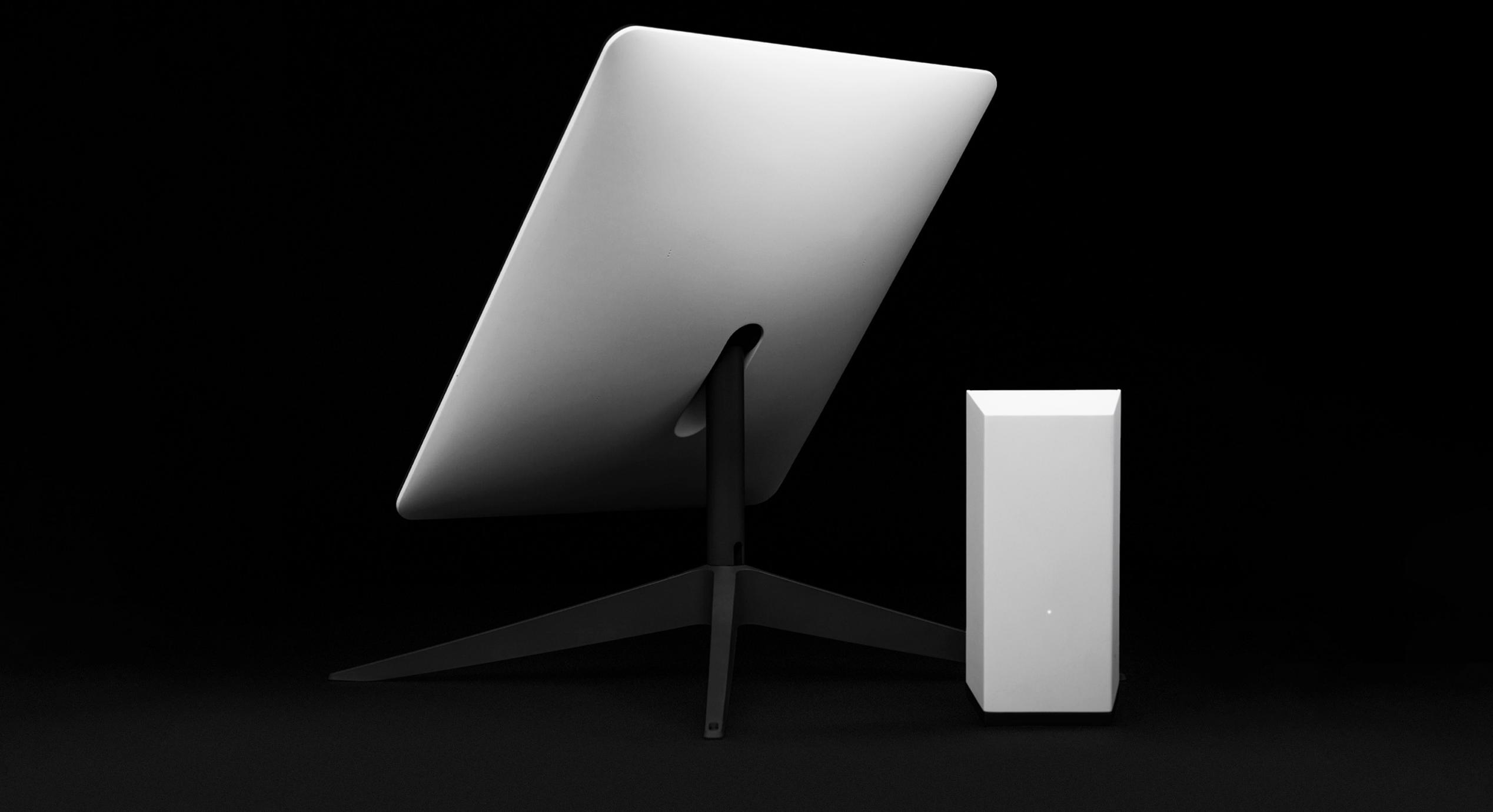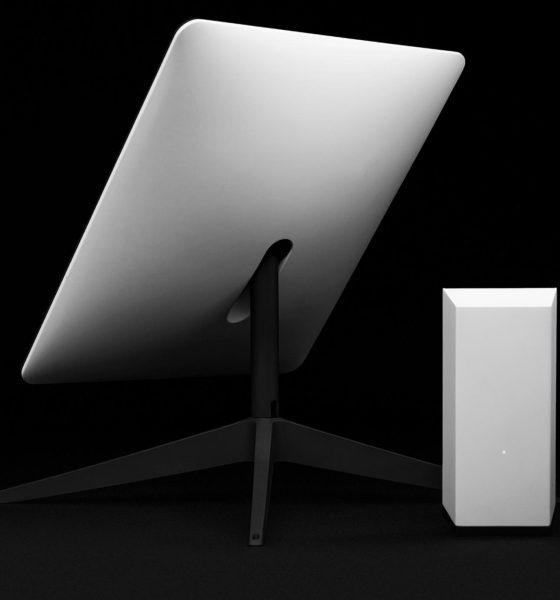

News
FCC reversal $885.5M Starlink award has no lawful basis, commissioner says
A Federal Communications Commission (FCC) commissioner, Brenden Carr, called out the FCC for denying Starlink’s $885.5 million infrastructure award. The FCC said that funding the network of Starlink satellites wouldn’t be the best use of limited broadband subsidies.
FCC Chairwoman, Jessica Rosenworcel said that the technology had real promise but that the FCC couldn’t afford to “subsidize ventures that are not delivering the promised speeds or are not likely to meet program requirements.”
Commissioner Carr highly disagreed with this move and shared his thoughts about it on Twitter. He said that its decision to reverse the $885 million infrastructure award was not only concerning, but done without legal justification. And it would leave rural Americans “waiting on the wrong side of the digital divide.”
The FCC’s 2020 award to Starlink secured a deal for the delivery of high-speed Internet service to 642,925 unserved locations.
But the FCC just vaporized that commitment and replace it with… nothing. That’s a decision to leave families on the wrong side of the digital divide.
— Brendan Carr (@BrendanCarrFCC) August 24, 2022
In his statement, Commissioner Carr said that he was surprised to find out by an FCC press release that reversed the $885.5 million infrastructure award that SpaceX had won in 2020. He said that this move mirrored the agency’s “broader set of missteps by costing taxpayer dollars while leaving rural communities behind.”
Commissioner Carr wrote,
“As an initial matter, this is a very curious outcome because the reasons the agency offers for backtracking on this infrastructure decision do not withstand even casual scrutiny. Indeed, the reversal constitutes clear error and plainly exceeds agency authority.”
“First, the FCC’s announcement claims that the agency is acting to ‘avoid extensive delays in providing the needed service to rural areas.’ Yet, that is exactly the outcome that this decision ensures. The FCC’s 2020 award to Starlink secured a commitment for the delivery of high-speed internet service to 642,925 unserved rural homes and businesses across 35 states. By reversing course, the FCC has just chosen to vaporize that commitment and replace it with…nothing. That’s a decision to leave families waiting on the wrong side of the digital divide when we have the technology to get them high-speed service today.”
Commissioner Carr also said that the agency’s excuse that Starlink’s technology is “risky” and “still developing, has no bearing. He noted that the FCC’s own speed testing data shows that Starlink’s speed has “increased significantly year over year.”
He further called the skepticism that the FCC showed “odd” since it is in “direct conflict with the confidence expressed by the other components of the federal government–including the Air Force, which just inked a nearly $2 million deal with Starlink to deliver high-speed Internet service to military bases.”
The FCC criticized Starlink’s pricing and Commissioner Carr also brought this up. “The agency cites Starlink’s price point in denying it this universal service award. Yet right now, the FCC is providing universal service awards for far slower internet services that cost consumers far more.”
Residents in Napakiak, Alaska, the Commissioner said, are paying hundreds of dollars every month for services supported by the FCC’s universal service awards that deliver “speeds less than 1/10th of Starlink’s.”
Commissioner Carr also said that the denial was without a lawful basis since “the 2020 Commission-level decision governing the Starlink award and similar awards did not authorize staff to deny a winning bid based on equipment price point considerations–let alone based on an arbitrary one selectively applied to one winner. As such, the denial here is without a lawful basis.”
Commissioner Carr is also concerned that the FCC’s decision will hurt taxpayers.
Your feedback is important. If you have any comments, or concerns, or see a typo, you can email me at johnna@teslarati.com. You can also reach me on Twitter @JohnnaCrider1

News
Tesla ships out update that brings massive change to two big features
“This change only updates the name of certain features and text in your vehicle,” the company wrote in Release Notes for the update, “and does not change the way your features behave.”

Tesla has shipped out an update for its vehicles that was caused specifically by a California lawsuit that threatened the company’s ability to sell cars because of how it named its driver assistance suite.
Tesla shipped out Software Update 2026.2.9 starting last week; we received it already, and it only brings a few minor changes, mostly related to how things are referenced.
“This change only updates the name of certain features and text in your vehicle,” the company wrote in Release Notes for the update, “and does not change the way your features behave.”
The following changes came to Tesla vehicles in the update:
- Navigate on Autopilot has now been renamed to Navigate on Autosteer
- FSD Computer has been renamed to AI Computer
Tesla faced a 30-day sales suspension in California after the state’s Department of Motor Vehicles stated the company had to come into compliance regarding the marketing of its automated driving features.
The agency confirmed on February 18 that it had taken a “corrective action” to resolve the issue. That corrective action was renaming certain parts of its ADAS.
Tesla discontinued its standalone Autopilot offering in January and ramped up the marketing of Full Self-Driving Supervised. Tesla had said on X that the issue with naming “was a ‘consumer protection’ order about the use of the term ‘Autopilot’ in a case where not one single customer came forward to say there’s a problem.”
This was a “consumer protection” order about the use of the term “Autopilot” in a case where not one single customer came forward to say there’s a problem.
Sales in California will continue uninterrupted.
— Tesla North America (@tesla_na) December 17, 2025
It is now compliant with the wishes of the California DMV, and we’re all dealing with it now.
This was the first primary dispute over the terminology of Full Self-Driving, but it has undergone some scrutiny at the federal level, as some government officials have claimed the suite has “deceptive” names. Previous Transportation Secretary Pete Buttigieg was one of those federal-level employees who had an issue with the names “Autopilot” and “Full Self-Driving.”
Tesla sued the California DMV over the ruling last week.
News
Tesla workers push back against Giga Berlin unionization
“IG Metall did not succeed in Giga Berlin‘s works council election earlier today. The union share was reduced from nearly 40% in 2024 to 31% in 2026! This is a clear message by the Giga Berlin team towards an independent co-determination! The list called Giga United, led by the current chairwoman, Michaela Schmitz, received the most votes with more than 40%! Good news for Giga Berlin!”

Tesla workers pushed back against unionization efforts at Gigafactory Berlin, and over the past few years, there has been a dramatic decrease in interest to unionize at the German plant.
Gigafactory Berlin Plant Manager André Thierig announced on Wednesday that IG Metall, the European union group, saw its share reduce from 40 to 31 percent in 2026 as employees eligible to vote on the issue. Instead, the Giga Berlin team, known as Giga United, received the most votes with more than 40 percent.
BREAKING! 🚨
IG Metall did not succeed in Giga Berlin‘s works council election earlier today. The union share was reduced from nearly 40% in 2024 to 31% in 2026!
This is a clear message by theGiga Berlin team towards an independent co-determination!
The list called Giga…
— André Thierig (@AndrThie) March 4, 2026
Thierig gave specific details in a post on X:
“IG Metall did not succeed in Giga Berlin‘s works council election earlier today. The union share was reduced from nearly 40% in 2024 to 31% in 2026! This is a clear message by the Giga Berlin team towards an independent co-determination! The list called Giga United, led by the current chairwoman, Michaela Schmitz, received the most votes with more than 40%! Good news for Giga Berlin!”
There were over 10,700 total employees who were eligible to vote, with 87 percent of them turning out to cast what they wanted. There were three key outcomes: Giga United, IG Metall, and other notable groups, with the most popular being the Polish Initiative.
The 37-seat council remains dominated by non-unionized representatives, preserving Giga Berlin as Germany’s only major auto plant without a collective bargaining agreement.
Thierig and Tesla framed the outcome as employee support for an “independent, flexible, and unbureaucratic” future, enabling acceleration on projects like potential expansions or new models. IG Metall expressed disappointment, accusing management of intimidation tactics and an “unfair” campaign.
The first election of this nature happened back in 2022. In 2024, IG Metall emerged as the largest single faction with 39.4 percent, but non-union lists coalesced for a majority.
But this year was different. There was some extra tension at Giga Berlin this year, as just two weeks ago, an IG Metall rep was accused by Tesla of secretly recording a council meeting. The group countersued for defamation.
Tesla Giga Berlin plant manager faces defamation probe after IG Metall union complaint
This result from the 2026 vote reinforced Tesla’s model of direct employee-management alignment over traditional German union structures, amid ongoing debates about working conditions. IG Metall views it as a setback but continues advocacy. Tesla sees it as validation of its approach in a competitive EV market.
This outcome may influence future labor dynamics at Giga Berlin, including any revival of expansion plans or product lines, which Musk has talked about recently.
News
SpaceX President Gwynne Shotwell details xAI power pledge at White House event
The commitment was announced during an event with United States President Donald Trump.

SpaceX President Gwynne Shotwell stated that xAI will develop 1.2 gigawatts of power at its Memphis-area AI supercomputer site as part of the White House’s new “Ratepayer Protection Pledge.”
The commitment was announced during an event with United States President Donald Trump.
During the White House event, Shotwell stated that xAI’s AI data center near Memphis would include a major energy installation designed to support the facility’s power needs.
“As you know, xAI builds huge supercomputers and data centers and we build them fast. Currently, we’re building one on the Tennessee-Mississippi state line. As part of today’s commitment, we will take extensive additional steps to continue to reduce the costs of electricity for our neighbors…
“xAI will therefore commit to develop 1.2 GW of power as our supercomputer’s primary power source. That will be for every additional data center as well. We will expand what is already the largest global Megapack power installation in the world,” Shotwell said.
She added that the system would provide significant backup power capacity.
“The installation will provide enough backup power to power the city of Memphis, and more than sufficient energy to power the town of Southaven, Mississippi where the data center resides. We will build new substations and invest in electrical infrastructure to provide stability to the area’s grid.”
Shotwell also noted that xAI will be supporting the area’s water supply as well.
“We haven’t talked about it yet, but this is actually quite important. We will build state-of-the-art water recycling plants that will protect approximately 4.7 billion gallons of water from the Memphis aquifer each year. And we will employ thousands of American workers from around the city of Memphis on both sides of the TN-MS border,” she noted.
The Ratepayer Protection Pledge was introduced as part of the federal government’s effort to address concerns about rising electricity costs tied to large AI data centers, as noted in an Insider report. Under the agreement, companies developing major AI infrastructure projects committed to covering their own power generation needs and avoiding additional costs for local ratepayers.








